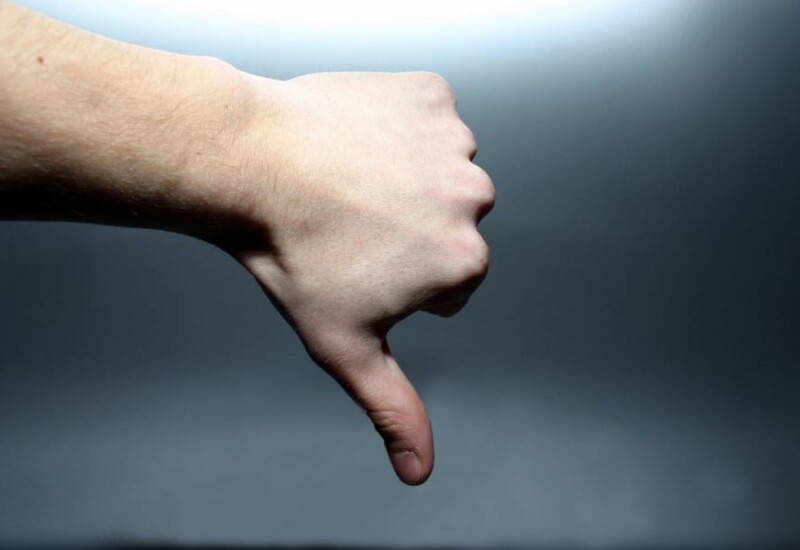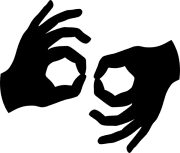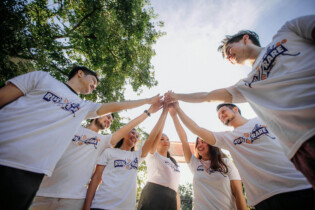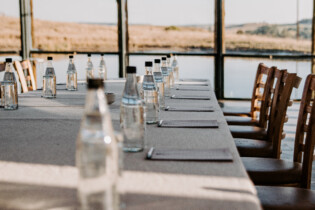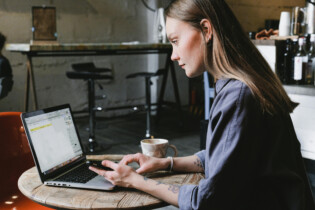Part II addresses access for those with hearing loss. Click here for Part I, which covers wheelchair access, and here for Part III, which covers access for those with visual disabilities.
Here are 11 ideas to make your event more accessible to people with various types of hearing loss.
As hearing loss is experienced different from individual to individual, it is important to firstly understand your guests’ abilities and communication preferences. When you do, you will be in a better position to supply suitable adaptions. For example, some may need a South African Sign Language Interpreter, while others will be more reliant on a good sound system or a Lip Speaker.
- Danie Botha-Marais from the National Council for Persons with Physical Disabilities in SA (NCPPD) recommends you start by finding a venue that has good lighting to see clearly, has a good quality sound system and good acoustics (as some people with hearing loss do rely on the hearing ability they have).
- Highly visible signage for washrooms and other facilities is also important, as well as accessible pedestrian signals – which indicate walk or don’t walk at intersections. Jabulane Blose, the CEO of the South African National Deaf Association (SANDA), says the latter tends to be missing at exhibitions and festivals in SA. If so, you could place a staff member at the intersection, to halt traffic and assist guests with crossings.
- “The primary challenge is access to communication,” says Ilse Bloem from the National Institute for the Deaf (NID). “Try to have all information about the event accessible in written form in a central place, to assist the person with hearing loss to stay informed on all changes that might occur in the program, as well as any additional information they might need.” This could be through an app, or a physical location at the event.
- Ilse adds that for MCs, talks, presentations or speeches, you can hire
a South African Sign Language Interpreter (SASLI). “If it’s a large group, you might want to consider projecting them on a big screen. If the proceedings are longer than two hours, two interpreters are needed as they need to take breaks,” she adds. And if there is networking or a banquet, make sure your deaf delegates have access to the SASLI.
- Sometimes a Lip Speaker Practitioner may be required, as some audience members may rely on speech reading during the event says Danie. As for SASLI, more than one will be required for longer events.
- Make sure SASLIs and Lip Speaker Practitioners are well positioned for their audience. “Deaf or hard of hearing people are often designated to sit in a particular area which is not well-lit and is considered ‘out of the way’. This is neither empowering nor accommodating,” says Rather reserve seating at the front of the room, directly in front of the SASLI or Lip Speaker Practitioner, for these guests.
- And don’t dim the lighting, he adds; “A well-lit room is preferable, as sign language goes hand in hand with facial expressions.” If the room must be dimmed for a presentation, consider a spotlight on the SASLI or Lip Speaker Practitioner.
- SASLIs can be costly, and there is a shortage of them in South Africa, so Jabulane also recommends using on-site Video Remote Interpreting solutions. He says, “SANDA uses the VIRECOM live interpreting service via a tablet, enabling two co-located people, the customer service representative and the Deaf person, to converse normally using a video-based interpreter to relay the conversation.” This technology also gives Deaf people a way to communicate back to others who do not know sign language.
- Danie also advises the use of technology like induction hearing loops, which is a type of sound system that emits a wireless signal that can be picked up by hearing aids.
- Sometimes people are accompanied by an aide or note taker. You should accommodate them, and consider giving them free or complimentary access.
- Make the event information, such as conference presentations, available afterwards, so that people can refer back to it to ensure they haven’t missed anything significant.
Look out for the Jan/Feb 2018 issue of Meetings magazine, which is running a feature on the invaluable topic of universal access for events.
For more information on how to make your event accessible for those with hearing disabilities, please contact these organisations:
- Association for Hearing Loss Accessibility and Development: www.ahlad.org
- National Council for Persons with Physical Disabilities (NCPPD): www.ncppdsa.org.za
- National Institute for the Deaf (NID): www.nid.org.za
- Road to Independence: www.roadtoindependence.co.za
- SA National Deaf Association (SANDA): www.sanda.org.za


